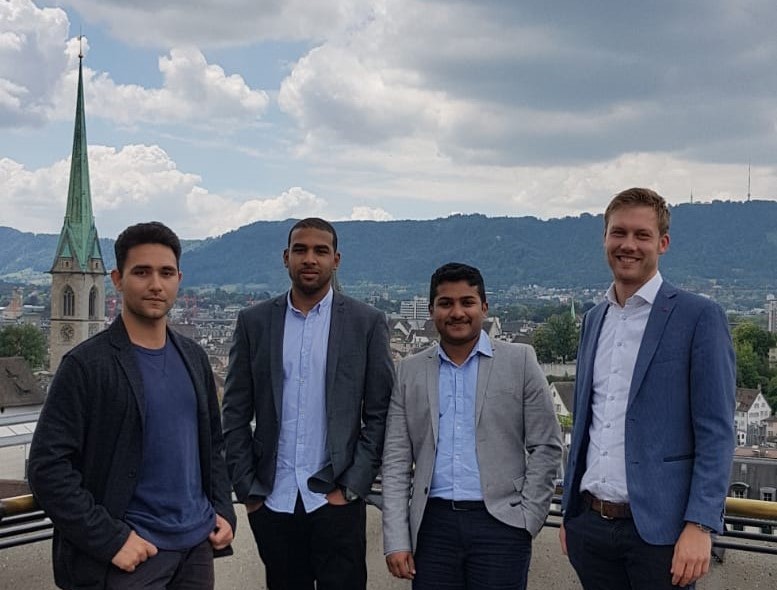IE students selected for the EIT Climate-KIC accelerator programme
Each year, a couple of MSc Industrial Ecology students join the EIT Climate-KIC label programme. EIT Climate-KIC is a European knowledge and innovation community. The focus of their complementary label is sustainable entrepreneurship and includes a five-week summer school (‘The Journey’). Apart from the label, Climate-KIC also offers an accelerator programme to help sustainable start-ups get on their feet. Four of our MSc Industrial Ecology students have recently been selected to participate in this accelerator programme! We have interviewed them to learn more about their start-up.
1. Can you tell us more about your start-up?
We developed the so called CoirWood board, made from coconut husk only. The idea is that these boards are sold to designers/furniture makers/DIY stores to make furniture, floorboards or cabinets. It can replace other types of boards as a 100% natural alternative. What sets it apart is the absence of any chemical binder which prevents toxic emissions during working with the board or when it’s in use. Furthermore, it can be shredded into powder at end of its use and used as pot soil.
2. Why have you applied for the EIT Climate-KIC accelerator programme?
We have been working on our idea for a while now. For instance, we were able to use the Interdisciplinary Project Groups (obligatory course of Industrial Ecology) to further develop our ideas. The main reason to apply for the EIT Climate-KIC accelerator programme is that we know that there is demand in the market for our product and ideas, but that there are also many slips between the cup and the lips. It is natural to make a lot of (costly) mistakes in the process of becoming a big business, so we needed financial means and guidance from people who have seen and probably also made some of these mistakes in the past and can help us avoid those!
3. How do you see your start-up develop within the next 10 years?
Over the next 2 to 7 years, we plan to set up our factory in India (were one of our team members is from) and establish sales channels and our own sales office in the BENELUX region. We also aim to expand our market to the rest of Europe and North America, as well as target the local market in India/South Asia. Further, we would like to expand to other natural materials and finished products.
4. Lastly, why did you apply for the MSc Industrial Ecology?
Our common reason for choosing Industrial Ecology was its broad view on environmental problems. Just like an antibiotic can be narrow spectrum attacking one particular strain of bacteria or it could be broad spectrum which can attack multiple strains of bacteria. Environmental problems require the latter approach, since the problem is not well defined and single pointed. Industrial Ecology helps you to develop so called ‘systems thinking’ and equips you with the tools and methods to deal with environmental problems.
Furthermore, it’s rather crucial that our way of living today needs change to a more sustainable one. And that changing our way of living can also provide us with additional possibilities.
This interview was held with four Industrial Ecology students: Anurag Bhambani (BSc Civil Engineering), Simon Begeer (BSc Public Administration), Sachithanandha Sundaram Shanmugasundaram (BSc Mechanical Engineering) and Mel Valies (BSc Aeronautical Engineering).
If you want to know more about the Climate-KIC Master label programme, please read the interview of Margot Moeslinger.
